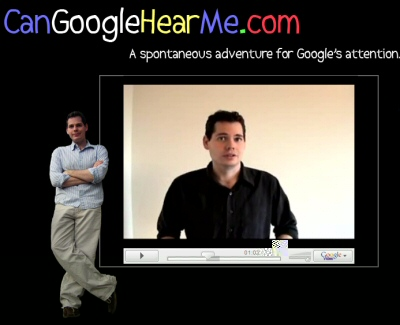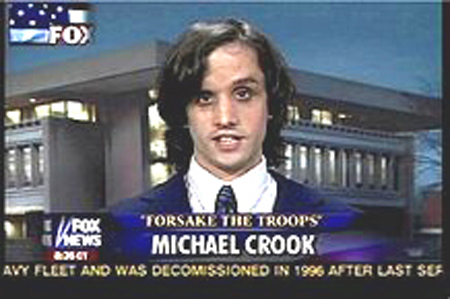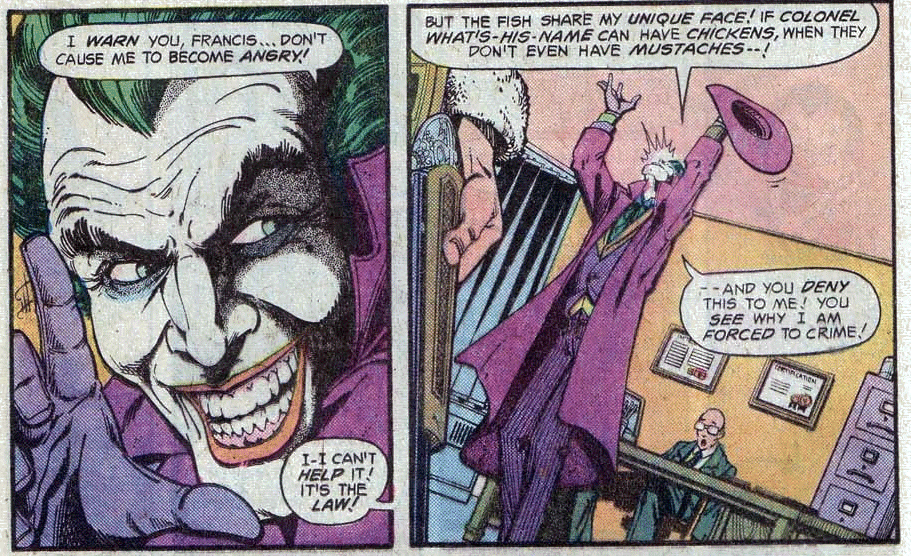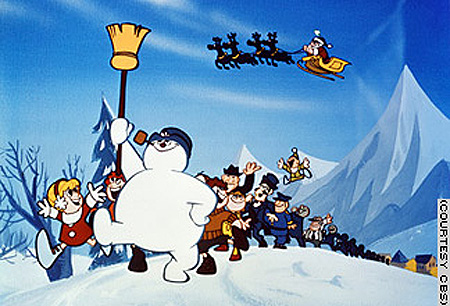 Photo by Scott Beale
It all started with Andy Warhol.
Photo by Scott Beale
It all started with Andy Warhol. He took a look around at the equipment available during the 1960s – tape recorders, video cameras, 8mm film – and realized that it wasn't necessarily about producing new narratives in the traditions of theater, opera and so forth. In fact, this was the stuff for documenting life right up to the point of tedium and beyond it, and it would be increasingly democratically accessible. This was, in fact, the context for his most famous quote: "In the future, everybody will be famous for 15 minutes."
Warhol was, of course, excoriated by both art traditionalists and committed political artists for presenting every day banality as art. But since he approached it all with such deadpan irony, others viewed his approach as the epitome of cool.
Today, Socrates' famous dictum, "the unexamined life is not worth living" has been surgically altered to read, "the undocumented life is not worth living." By the time Justin Kan clipped a mobile camera onto his cap on March 19, 2007, opening justin.tv, it was just another step along the way to the inevitable – the fully mediated life.
On arrival, justin.tv caught a media buzz. Justin appeared on "Nightline," "The Today Show," and "MTV News," and various blogs, newspapers and magazines covered his occasional travails (pranks, evictions, etc.) Not wanting to miss our chance at some justin.tv camera time, we coaxed him into appearing on
The RU Sirius Show.
Justin Kan showed up at our former studio in San Francisco's lower Haight with a small entourage that included his brother (who contributed a funny and cool rap song to the show). He proved to be funny, smart, self-aware, and entirely likeable.
Since we interviewed Kan last month, justin.tv has started to spread its franchise. "Justine," a cute blonde freelance graphic/web designer and video editor from Pittsburg seems to keep the camera pointed mostly
at herself, for obvious reasons. And "Parrris Harris," who calls himself a "fashion conductor" has also been added to the roster.
Pretty soon, there may be hundreds of people broadcasting their lives 24/7 via justin.tv; or through some other "channel." Watching them must be
somebody's idea of a good time.
Futurist
Jamais Cascio and Jeff Diehl joined me for this conversation with Justin Kan.
To listen the full interview in MP3, click here.
RU SIRIUS: You're sort of a walking security camera — the democratization of surveillance. Have you thought about the implications of that?
JUSTIN KAN: I've thought a
lot about the implications of where we're moving as a society. We're losing our privacy, whether we like it or not, right now. It's partially voluntary — through blogs and things like justin.tv, or through exposing your life on social networks like Facebook or MySpace. And it's partially involuntarily, through the prevalence of closed-circuit TV cameras everywhere. Camera technology and cameras in cellphones are getting so cheap that they're everywhere, and people are taking pictures of everything.
I guess the question in my mind is: how do we want to move to that? I think the worst thing that could happen is that there's a huge power disparity, with certain people having access to all these video cameras, and the large majority of people
not having access.
JAMAIS CASCIO: I've written about
"The Participatory Panopticon." David Brin refers to that as "reciprocal accountability."
RU: Brin also says "Privacy is dead, get over it." We are Big Brother!
JAMAIS: Indeed. You don't have Big Brother; you have scores of Little Brothers and Sisters.
JUSTIN: Exactly.
RU: So Justin, you're planning a sort of franchise thing.
JUSTIN: Exactly. I want everyone out there to be broadcasting their lives online!
JAMAIS: It's Justin.NN — The Justin News Network.
JUSTIN: Yes.
(Laughs) I don't know if it counts as news.
RU: What's the most interesting thing that's happened to you since you strapped on the camera?
JUSTIN: One of the weirdest and maybe the worst was, right when we started, a couple days in, our viewers called the police on us. They used VoIP to spoof our phone number. The cops burst in, guns drawn, expecting to see this horrible crime going down when actually it was just three guys on laptops. I think they were a little disappointed!
JEFF DIEHL: You can do some horrible crimes on a laptop! Didn't they realize?
JUSTIN: They did not, actually. When we were trying to explain how someone spoofed our number with relay, one of them said, "I don't understand technology. I just shoot people!"
(Laughter)
JAMAIS: Since you mentioned the police activity, what immediately strikes me is: you will, at some point, record a crime in progress. Whether it's somebody being mugged on the street, or something like that...
RU: You are such a pessimist!
(Laughter)
JAMAIS: It's just the real world! You do this long enough, you will eventually record something that's illegal! And then you're therefore a witness — or more to the point,
your archives become a witness to this crime. And the question then becomes: can the recordings be subpoenaed by the police? Have you given any thought to that?
JUSTIN: I expect they'd be able to subpoena our archives, just like the prosecution can subpoena archives of a security camera. They call in the surveillance company — or whoever is responsible for the tapes — as the witness, to testify how the camera was set up. I'd probably be in a similar position.
JAMAIS: Right.
RU: There's so many weird and interesting events going on in San Francisco. You could go to insane performance art stuff where people are putting nails through their organs, or...
JEFF: What?!
RU: I guess that was in the 90s – people like
Mustafar were always performing. Or you could go to underground sex clubs and stuff like that. Are you staying away from the really weird stuff? Does it just not appeal to you?
JUSTIN: I kind of go for the weird-but-fun San Francisco stuff. Like there was that Lombard Street Big Wheel race, so I participated in that. You got to see the Big Wheel view of me, tearing down Lombard Street, ramming into people...
RU: Your greatest controversy was when you switched off your gear when you were with a young lady. This is, of course, the thing everybody was waiting to see! And it sparked much debate about whether you sold out on your promise to keep this justin.tv thing going, consistently and constantly. How do you view that?
JUSTIN: Well, the bottom line is, it's my life, and I'll do whatever I want!
RU: (Laughs) Opportunity struck, and...
JUSTIN: Opportunity strikes, and... You know...
JEFF: "What's more important: this camera or getting laid?" If she's not going to do it with it on, then...
RU: But if you look around the net, there's obviously a lot of women who want to show off for the camera. Have you been approached by, uh, you know... women who want to make a reputation?
JUSTIN: I don't know. We're still trying to figure out what we can show and what we can't show. And I think that, right now, the safe play is definitely being family-friendly. We always like to encourage advertisers to approach us. And something like that might be a little over-the-top from a corporate perspective.
JEFF: Can't you just make an immediate fuzz filter, so — you know, the guy on the control just hits a button and it goes fuzzy. But you still see stuff moving around...
JUSTIN: We might be able to do that, actually. We'll have to hire an intern to sit there and move the little bubble around.
JEFF: The naughty bits.
JUSTIN: Yeah.
JEFF: Isn't there going to be a big scandal for your franchise when the first person starts broadcasting themselves naked or having sex or something that's considered obscene? How do you regulate that?
RU: I thought that was the idea!
(Laughter)
JEFF: Well, of course it is! But nobody's done it yet! I'm surprised nobody's done it publicly yet. I'm surprised
you haven't done it publicly…
JUSTIN: Justin.tv has been R-rated at best, so far.
JEFF: But isn't that going to be a problem? It will probably become some kind of a free speech issue. You'd have to force people through some channel where whatever they're going to be webcasting — it's okay. Because otherwise, anybody can just load up their browser and watch people having sex!
JUSTIN: Well they can already do that. Just not on justin.tv!
JEFF: You're going to make it a lot easier...
RU: So whatever people are going to do with their Justin franchises is OK to you?
JUSTIN: Well honestly, justin.tv shouldn't be a platform for the (sort of) "bad stuff" out there on the internet. Whether it's hate speech or obscenities of whatever. So we'll almost definitely do some censorship. If someone's using their channel to broadcast themselves committing a crime – well, that's not something we want to promote. You know? We would definitely shut that down.
JAMAIS: Have you run into any intellectual property disputes — recording something that someone else claims as their own copyrighted material?
JUSTIN: Not yet. I guess if we were issued a takedown notice from someone who's music I listened to… but we haven't gotten anything.
RU: It seems like the one thing that you need to avoid is watching a lot of other media.
JUSTIN: Well, I don't go to movies. And I think I've watched TV like one time in the past 56 days, and the camera wasn't pointed at the screen. But honestly, the quality from the justin.tv camera (recording other media) is such that you're probably better off BitTorrenting it anyways.
JAMAIS: That doesn't matter.
JUSTIN: I understand that it doesn't matter from a
legal perspective. But, for instance, I've been invited by ClearChannel radio stations to come in the station and listen to music. I think they view it more as a promotional tool.
RU: But the music industry might start displaying their hunger for reward as this gets more distributed — just like they're doing with internet radio. A lot of people who use your equipment are going to be listening to music all the time — or else they're going to have to change their lifestyles.
JUSTIN: Right. But I wouldn't be surprised if the music industry realized that this is something more along the lines of radio.
RU: Yeah, but
they're attacking internet radio right now!
JEFF: It's the same thing as people using it for sex. As soon as you democratize it and make it available for everyone to use for free — they're going to start going to concerts, and they're going to start going to movies. How do you police that?
JUSTIN: That's something we'll have to figure out as we go along.
JAMAIS: And
how do you control it? Right now the camera that you're wearing is maybe the size of a small Mag-Lite. Within the next few years, you'll be able to wear something the size of a lipstick tube. Or maybe even something that's smaller than that.
JUSTIN: You can already do that. There are glasses that have built-in cameras that you could actually use with this. We made the conscious decision to make the camera visible; partly, to promote the celebrity of it, but also to let people know they were on camera. I think that's much more ethical than the alternative.
RU: Have you had anybody become upset about being on camera? I remember when I was walking around in the 1970s with a video camera — one of those ancient
Portapacks that you strapped to your back. Some guy got really paranoid and upset that I was randomly videotaping people.
JUSTIN: I got kicked out of the Gap. That was probably the worst response. And some people request… you know, "Oh, I don't want to be on camera." So I kind of turn away and don't talk to them. And that's generally been okay. Most people — I'd say 29 out of 30 — have been really excited or positive about it.
RU: They want to be on camera.
JUSTIN: Yeah.
RU: They think what you're doing is a cool thing. It's interesting.
JUSTIN: Exactly. And I think part of it is my attitude about it. I'm not an investigative reporter! I try to approach people in a way that makes them comfortable. I'm not "in your face" about it.
RU: Do a Mike Wallace trip on people! That would be a sudden turn for Justin!
JEFF: I was just imagining flocks of skaters downtown wearing these things and going around and pulling Mike Wallaces all over the place.
RU: Did you go to that movie that you were advertising?
JUSTIN: Disturbia. Yeah, we went to the movie. We took the camera off and played the trailer while I was in the theatre. So there was another two-hours where you didn't get to see of Justin's life. Mostly I was sitting in the theatre.
JAMAIS: So you say.
JUSTIN: So I say.
RU: I would think that the company that made the movie would've wanted you to sit there and view...
JUSTIN: I don't think they wanted the recording of video out there. I guess they could've turned the camera on me or something. That would've been cool.
JAMAIS: It would've been interesting to have a recording of your reaction to the movie.
JEFF: That's something that you could do during sex, too!
JUSTIN: (Laughs) Just put the camera on myself, like this, I guess...
JEFF: Just her view! Yeah!
RU: Justin's smiling face...
JUSTIN: It'll be like [makes a face].
(Dryly) Yeah, that would be great. I'm sure the viewers would appreciate that...
JEFF: Your "O face," close up.
RU: From what I understand, quite a large majority of your viewers are male. Does that...
JUSTIN: I don't know if that's true. A surprising amount of our viewers are outside the demographic that I thought they would be in — which was 13 to 35-year-old males. They seem to be… everyone. Mothers, fathers, older women, girls in their 20s... It's amazing that we've hit all over the map like that.
RU: What do you think is appealing to them? And do you think it can continue to be appealing over a long period of time?
JUSTIN: Well, I think the appealing thing about something like justin.tv is that you get an inside view into someone's life. It's kind of a low-commitment way of having a real relationship. And you know, people want to talk to other people, and people like watching other people — fundamentally.
JAMAIS: It's very primate.
JUSTIN: Exactly. It's something everyone does, instinctually. So being able to just go to a web site and automatically have video of one guy — day after day — and you can see what he's doing and check up on him – that's something that appeals to a lot of people.
RU: It's like an extra relationship.
JUSTIN: Exactly. What's cool is the way that communities have formed around the video. People log in the chat room, and talk with each other. People with the same faces show up and they recognize each other. It's cool. After the first week, I stopped going to the chat room much. And then when I came back, maybe three weeks later, I was like the outsider. In my own chat room!
RU: Do
you monitor what viewers like, what some of their favorite moments are?
JUSTIN: I get viewer updates every fifteen minutes to the cellphone so I can see —"Oh, this caused a spike." I was at the Halo 3 premier, and we plugged the live feed of us playing it into the transmitter. And we instantly got around 80 viewers. Everyone wanted to check out the demo!
RU: There has been some note that your viewership has been going down.
JUSTIN: (Joking) It might be because I'm not attractive enough!
RU: Do you have plans to do some things to bring people back? Or are you just going to let it flow...
JUSTIN: Well, we had this huge spike after we were on
Nightline and
The Today Show. Now after a huge press wave, we've basically stabilized. So we're working on viral tools to let people share their videos more easily; and to access the archives. We have this huge library of content. But am I going to do some horrible stunt? We'll have to see.
RU: If you get this franchise going, and there are a bunch of people doing this — are you going to want to watch a lot of them? Or are you going to be like me? I never really
listen to other podcasts...
JUSTIN: You know, I don't watch justin.tv. For one reason, it's...
RU: (Laughs) Can't watch that damn thing!
JUSTIN: Yeah.
(Joking) Everyone on it is irritating!
JAMAIS: It gets a bit recursive.
JEFF: The infinite regress is disconcerting...
JUSTIN: People don't want to see me watching myself. Over and over.... I guess when we do launch a bunch of other channels, I won't watch those very much either. I'll just get feedback from other people — let them tell me who's interesting and who's not.
RU: Rake in the percentages!
JUSTIN: Yeah, something like that.
JEFF: (Joking) Just don't give
Josh Wolf your technology. God knows what kind of trouble he'll get into with it.
JUSTIN: He'll be back in jail, two months later!
JEFF: Do you ever want to unplug?
JUSTIN: That's a very common question. It's just like anything. There are times you want to and times you don't.
RU: Do you ever feel deeply depressed, and feel "Oh shit! What did I get myself into?"
JUSTIN: No, that hasn't happened yet. We're saving that for when we need some good drama!
See Also:
Worst Vlogs of 2006
ABCNews Amanda Congdon - Rocketboom = Whuh?
The Secret Life of Jason Fortuny
Virtual Screech, Sexual Superstar
Screech's Sex Tape Follies




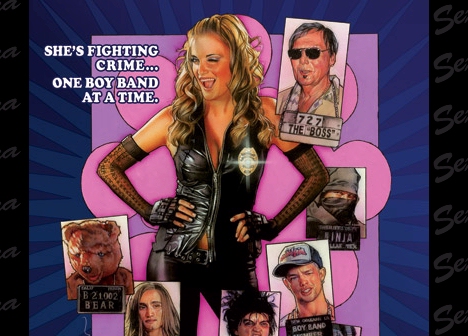

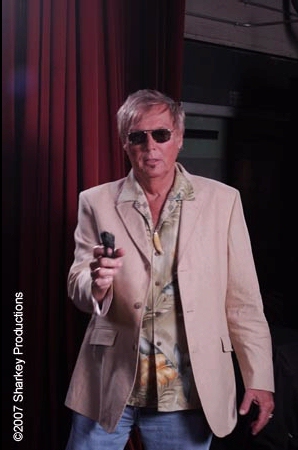
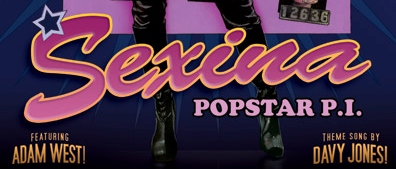
.jpg)

.jpg)
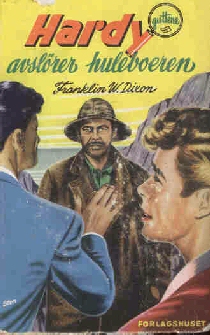 McFarlane's book even detours to report that the females in the book were feeling left out.
McFarlane's book even detours to report that the females in the book were feeling left out.

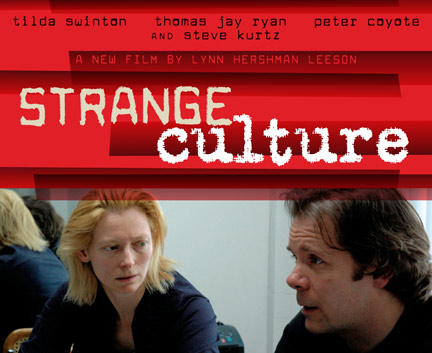




.jpg)




